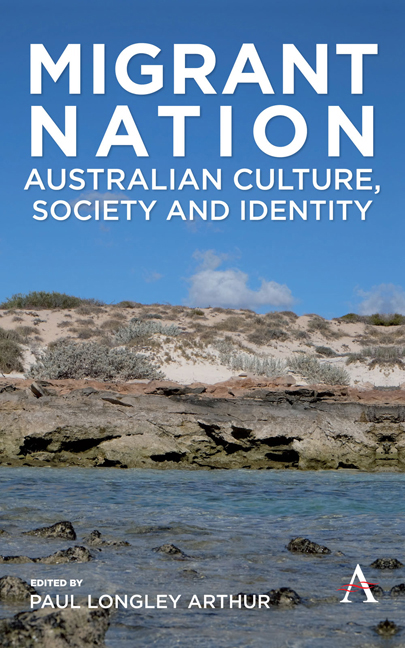Book contents
- Frontmatter
- Contents
- List of Figures
- 1 Introduction: Transcultural Studies in Australian Identity
- 2 Remembering Aboriginal Sydney
- 3 Files and Aboriginal Lives: Biographies from an Archive
- 4 Writing, Femininity and Colonialism: Judith Wright, Hélène Cixous and Marie Cardinal
- 5 The Staging of Social Policy: The Photographing of Post-War British Child Migrants
- 6 Writing Home from China: Charles Allen's Transnational Childhood
- 7 Australian? Autobiography? Citizenship, Postnational Self-Identity and the Politics of Belonging
- 8 A Nikkei Australian Story: Legacy of the Pacific War
- 9 Displaced Persons (1947–52) in Australia: Memory in Autobiography
- 10 Between Utopia and Autobiography: Migrant Narratives in Australia
- 11 Vietnamese–Australian Life Writing and Integration: The Magazine for Multicultural and Vietnamese Issues
- 12 Heroes, Legends and Divas: Framing Famous Lives in Australia
- List of Contributors
- Index
8 - A Nikkei Australian Story: Legacy of the Pacific War
Published online by Cambridge University Press: 10 May 2018
- Frontmatter
- Contents
- List of Figures
- 1 Introduction: Transcultural Studies in Australian Identity
- 2 Remembering Aboriginal Sydney
- 3 Files and Aboriginal Lives: Biographies from an Archive
- 4 Writing, Femininity and Colonialism: Judith Wright, Hélène Cixous and Marie Cardinal
- 5 The Staging of Social Policy: The Photographing of Post-War British Child Migrants
- 6 Writing Home from China: Charles Allen's Transnational Childhood
- 7 Australian? Autobiography? Citizenship, Postnational Self-Identity and the Politics of Belonging
- 8 A Nikkei Australian Story: Legacy of the Pacific War
- 9 Displaced Persons (1947–52) in Australia: Memory in Autobiography
- 10 Between Utopia and Autobiography: Migrant Narratives in Australia
- 11 Vietnamese–Australian Life Writing and Integration: The Magazine for Multicultural and Vietnamese Issues
- 12 Heroes, Legends and Divas: Framing Famous Lives in Australia
- List of Contributors
- Index
Summary
‘Diaspora’ is a useful umbrella term under which we can discuss large-scale migration, but it can lead to homogenized representations of migrants and may fail to reflect the individual pressures or dreams that motivated the migrants to leave their homelands. As part of a broader interest in how the Pacific War affected the Japanese diaspora, in this chapter I attempt to personalize and re-examine the notion of diaspora through the life story of Joseph Clement Kisaburo Murakami, an Australian-born ethnic Japanese who holds an Australian passport and has permanent residency in Japan. Joe is one of the few surviving Nikkei (persons of the Japanese diaspora) Australians who were interned in Australia during the war. His life was not only interrupted by his internment but also irrevocably changed. This story is a result of my long association with Joe and is based on letters and emails, as well as on conversations I have had with him over a period of 20 years. Joe turned 87 in 2014. Although personal, his story can cast light on a rarely visible strand in the history of Australia's changing sense of identity as a nation from the time of World War II to the present day.
I met Joe in Japan when he was in his 60s. I remember that, at my first meeting with him, he greeted me not with a Japanese bow but with a strong handshake. I had met some Nikkei Australians in Australia before, but this was my first encounter with a Nikkei Australian who was living in Japan. We have always communicated in English, although we occasionally switch to Japanese when other non-English-speaking Japanese are present. I am ethnic Japanese, a Japan-born permanent resident of Australia, where I have lived longer than in my native country. In Japan, we both disappear into the crowd as Japanese, but I am aware that there is a subtle hint of foreignness in his body language. Perhaps my body language has also changed. In this sense, we may both be perceived as misfits.
In 1999 Noreen Jones, a researcher from Broome, Australia, travelled to Japan to meet Joe and another Nikkei Australian named Rita, age 84, who was also living in Japan.
- Type
- Chapter
- Information
- Migrant NationAustralian Culture, Society and Identity, pp. 137 - 150Publisher: Anthem PressPrint publication year: 2017



